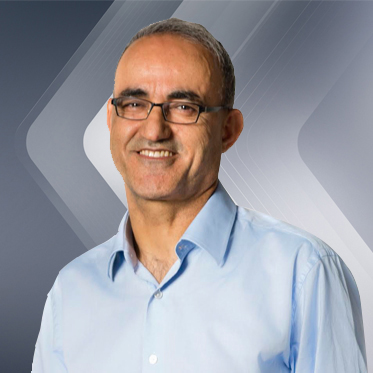The views expressed in this article are those of the author and do not necessarily reflect the position of Kurdistan24, any related institutions, or organizations.
Experimenting with Freedom: Italian lessons for Kurdish patriots

Italian poet Giacomo Leopardi (1798-1837) didn’t live long enough to see a free Italy, but wrote some of the most moving verses to lament his homeland’s subjugation to France under Napoleon Bonaparte.
In a poem titled, To Italy, he mourns the loss of Italian soldiers to the Russian cold outside of Moscow as soldiers of Napoleon's army with haunting words that can easily translate to the Kurdish experience, where Kurds died in Korea fighting for Turkey's Adnan Menderes, or in Kuwait under Saddam Hussein's Arab army.
Oh miserable is he—who dies in battle,
not for his country’s soil, his faithful wife
and precious children,
but he dies serving someone else,
dies at the hand’s of that man’s enemies,
and can’t say at the end: Beloved native land,
the life you gave me I give back to you.
Italians devoured his poems like hungry wolves and set out to liberate Italy from the yoke of France and Austria.
Three of them deserve special Kurdish notice—for what may be called the soul, brain and sword of Italian freedom.
Guiseppe Mazzini (1805-1872) charmed the soul with his passion for liberty. As if addressing the stateless peoples all over the world, he said:
“Do not beguile yourselves with the hope of emancipation from unjust social conditions if you do not first conquer a country for yourselves.”
“Without country,” he harangued his fellow Italians: “you are the bastards of humanity.”
Truer words have never been uttered so succinctly on behalf of freedom anywhere in the world. Mazzini may have voiced the deepest yearnings of Italian patriots, but the brain behind the unification of Italy was Count Cavour (1810-1861), the prime minister of King Victor Emmanuel in the Kingdom of Piedmont, a small Italian state bordering France. Unlike Mazzini, who advocated mingling blood and iron for freedom, Cavour opted for diplomacy, especially with 19th century superpower Great Britain, to achieve the same goal.
So when Great Britain, together with France and the Ottoman Empire, declared war on Russia to preserve the territorial integrity of the crumbling Turkish state, Count Cavour rushed 15,000 Italian soldiers to Crimea to side with the victors in 1853.
Four years later, the same Cavour allowed Russia to establish a naval base in Piedmont.
He also convinced his king to exchange the province of Savoy and the city of Nice, the birthplace of Italian patriot Guiseppe Garibaldi, for a strategic alliance with France against Austria.
One might call him a "man for all seasons" and we Kurds may see some of our own leaders in him. Salih Muslim’s decision to cooperate with America in Raqqa certainly has a Cavourian tinge to it. Masoud Barzani’s budding relationship with Exxon-Mobil and Rosneft falls under the same category.
The man who actually did the most to liberate Italy and captured the imagination of Italians and Europeans alike was the native of Nice, Guiseppe Garibaldi (1807-1882).
Britain’s poet laureate Lord Tennyson, after planting a tree in his honor, movingly wrote:
Or watch the waving pine which here
The warrior of Caprera set,
A name that earth will not forget
Till earth has roll'd her latest year—.
Emancipation movements used to command the attention of 19th century poets. Since the dawn of 21st century, the bards have gone quiet, but the prose writers are busy conflating our desire to be free, alas, with selfishness.
In Italy, the decisive countdown for independence started on May 5, 1860. With the help of Cavour, Garibaldi and his Mille (thousand) Redshirts sailed to Marsala in western Sicily with a consequential hoodwinking from Great Britain.
Four months later, all of Sicily and southern Italy were in the hands of 21 thousand Redshirts and Garibaldi. Italians were winning and those dying could finally say, as Leopardi wanted them to:
“Beloved native land,
the life you gave me I give back to you.”
Ten years later—with a little bit of help from Bismarck’s Germany, modern Italy was born. But instead of focusing its energies on making Italians better patriots, it foolishly aspired to become an imperial power with fleeting forays into Eritrea, Somalia, Libya, the Dodecanese Islands, and Ethiopia.
Leopardi, the Italian poet, could finally rest in peace. These days, Italians are not dying at the outskirts of Moscow from the cold as stooges of someone else’s quarrel. They are busy selling Russians designer clothes and luxury cars to make up for Lenin’s forced, but failed experiment in equality.
Kani Xulam is a political activist based in Washington D.C. He runs the American Kurdish Information Network (AKIN).
